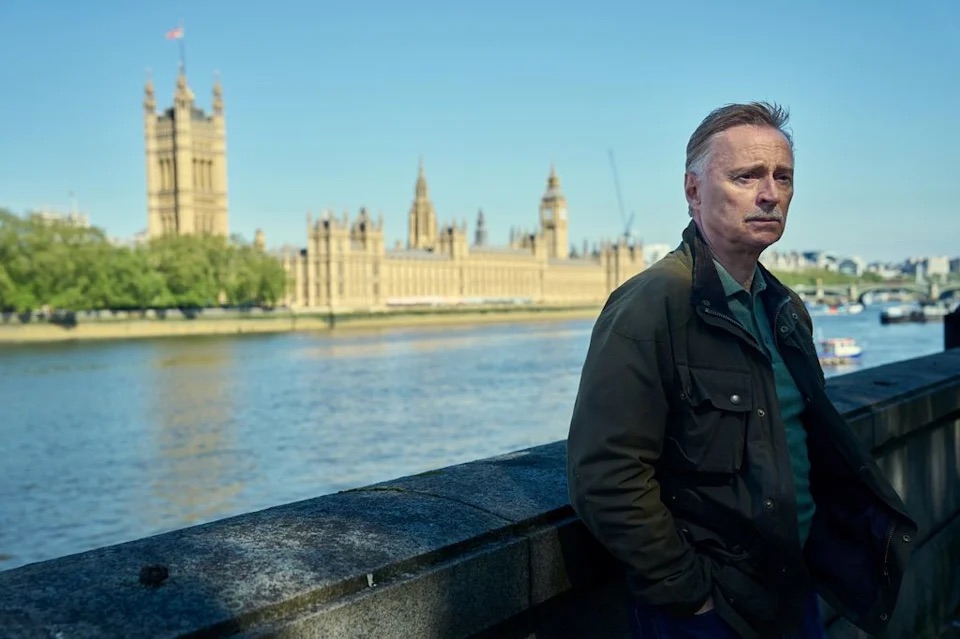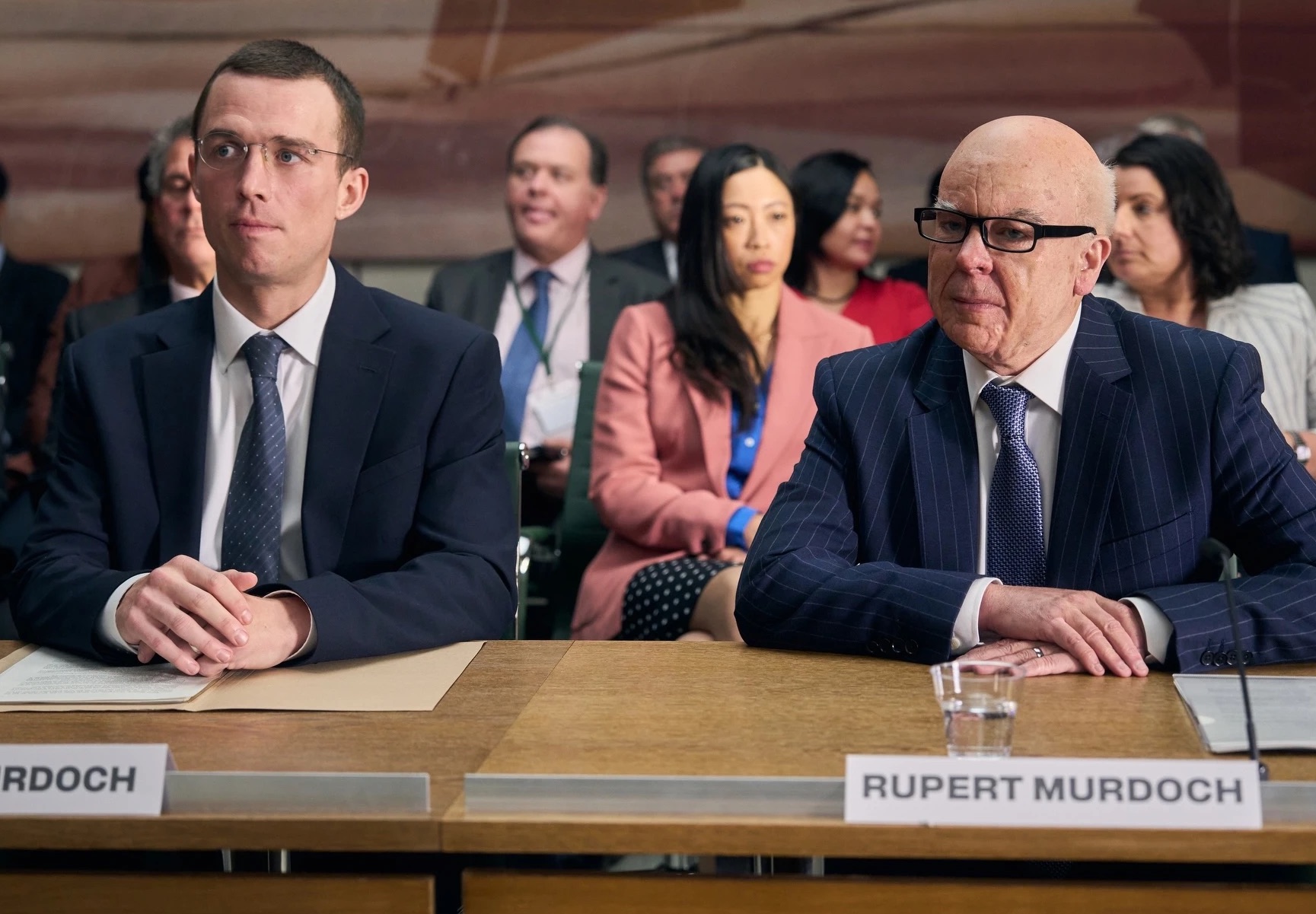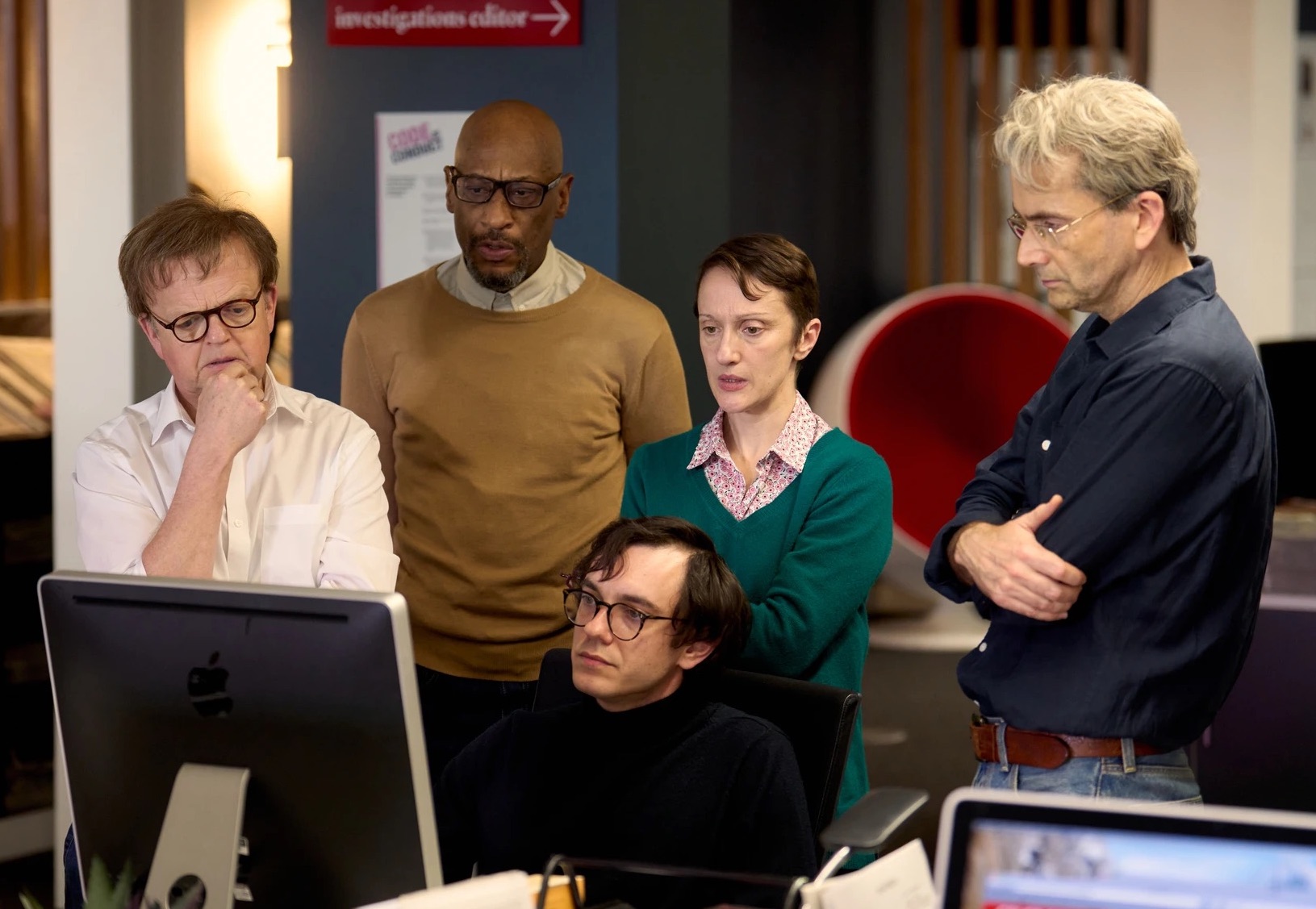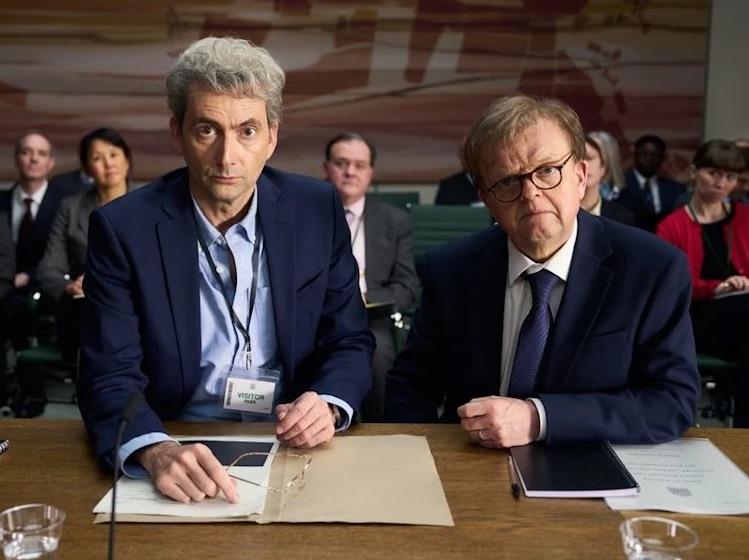The latest instalment of the ITV drama department’s attempts at trial by television is another anatomy of a scandal, but with little of the emotive power of Mr Bates vs The Post Office.
It’s an odd, ungainly construct that attempts to meld two separate plotlines, almost as if two dramas were prepared independently and then belatedly welded together. Jack Thorne is credited as the writer of both, the able author of, among many other TV hits, Adolescence and National Treasure. But even he can’t stitch this unwieldy material Into a coherent, impactful whole.
The point of contact between the two strands is a private investigator, Jonathan Rees, who worked for News International and was also a lead suspect in the as yet unsolved 1987 murder of his business partner at Southern Investigations, Daniel Morgan. Rees and associates were investigated five times at vast public expense for Morgan's murder, but the Metropolitan Police failed to make any charges stick and, after a 2011 trial collapsed, the accused walked free. On their tail was DCS Dave Cook (Robert Carlyle, pictured below), who found himself arrested for misconduct in the course of his investigations, though the charges were dropped. Simultaneously in pursuit was the dogged Guardian investigative journalist Nick Davies (David Tennant). Cook’s arrest is shown in the first episode, but it takes the series another five to catch up with it again, in 2012; and it takes what seems an age, but is only one episode, for Davies and Cook to meet and start swapping intel. They will eventually join forces, under the supervision of an unlikely politician (played by an unlikely actor). In between, the essentially boring business that is investigative journalism, and police inquiries, continues, turning up leads that can’t be substantiated, involving News of the World journalists few have ever heard of.
Cook’s arrest is shown in the first episode, but it takes the series another five to catch up with it again, in 2012; and it takes what seems an age, but is only one episode, for Davies and Cook to meet and start swapping intel. They will eventually join forces, under the supervision of an unlikely politician (played by an unlikely actor). In between, the essentially boring business that is investigative journalism, and police inquiries, continues, turning up leads that can’t be substantiated, involving News of the World journalists few have ever heard of.
The 2006 arrest and conviction of the NoW’s royal correspondent, Clive Goodman, and the PI he used to hack Clarence House staff, Glenn Mulcaire, finally sets the ball rolling, but the stakes only rise in 2009 when disgraced Andy Coulson of the NoW, who did jail time for the royal hacking, is employed by David Cameron as his comms director. Then things boil over again two years later with the discovery that murder victim Millie Dowler’s phone has been hacked.
There are points in the narrative where you sense Thorne is aware of the possible lack of appeal of his dry material, making Tennant talk to the camera as often as possible, increasingly annoyingly, and at one point positioning a mariachi band in a cupboard to spice up the action. There is Succession-lite music, too, trying to accentuate the dramatics, inspired set dressing that has managed to find still functioning Blackberries and a tone of intellectual endeavour in the dialogue, where famous thinkers are regularly quoted, as if to nail its upscale credentials.  Watching becomes a game of spot-the-famous-actor. I was particularly amazed by the poster featuring a cartoon of Rupert Murdoch’s face that comes to life as Davies is standing next to it, giving one of his tart to-camera lectures. Looks like Steve Pemberton with added wrinkles, thought I. And indeed that, jaw-droppingly, is who it turns out to be, seen in a brief stint at the DCMS Media Committee hearing (pictured above with Jordan Renzo as his son James) where Murdoch ended up being cream-pied.
Watching becomes a game of spot-the-famous-actor. I was particularly amazed by the poster featuring a cartoon of Rupert Murdoch’s face that comes to life as Davies is standing next to it, giving one of his tart to-camera lectures. Looks like Steve Pemberton with added wrinkles, thought I. And indeed that, jaw-droppingly, is who it turns out to be, seen in a brief stint at the DCMS Media Committee hearing (pictured above with Jordan Renzo as his son James) where Murdoch ended up being cream-pied.
Pemberton isn’t the least of the miscast actors. Alastair Campbell wisely appears in person, but the rest are a motley crew. (Full disclosure: I worked for The Sunday Times for 34 years, meeting some of the characters in this series, including Rebekah Brooks and the lead lawyer at the Guardian, later of the Times group, Gill Phillips, here unrecognisable as a dour personage played by Nadia Albina, pictured below, quite unlike the amiable lawyer I knew). Rosalie Craig has Brooks’s hair colour but not her matey swagger. Much odder is the casting of the Editor of the Guardian, Alan Rusbridger, a lofty fellow whose academic demeanour is captured well by the ubiquitous Toby Jones – but he looks almost comic here, a diddy-Rusbridger in a bad wig.
Tennant at least looks the part (though another Time Lord, Peter Capaldi, is more of a Davies lookalike) and has Davies’s relentless nervous energy. He also gets a back story, involving his persecution as a boy by his vicious mother, who beat him incessantly – detailing designed to explain his passion for exposing those who abuse their power. Does he need a personal reason for doing his job well?
The acting honours go to Robert Carlyle, touchingly portraying a policeman of integrity whose marriage founders during the course of his investigations – his wife Jacqui Hames (Eve Myles) is a former police detective who worked on Crimewatch alongside Jill Dando; she is naturally spooked when NoW snappers start stalking her family. Also fruitfully given more than a cameo are Kevin Doyle as the Met’s jittery Assistant Police Commissioner John Yates, who resigned in 2011 along with his boss when the Met’s failings in weeding out corruption were uncovered; and Paul Kaye as Gary Eaton, the paranoid informant who claimed to have witnessed the Morgan murder.
Running through the script is a drip-drip of menace that never actually materialises and undercuts the heft of the project. “They” are out to get the investigators and things “could turn nasty”, characters frequently intone, though “they” are never clearly specified: presumably, the unholy alliance of corrupt top people working for the Met, No 10 and Fleet Street. All are said by Davies in his first big speech to camera to be “hiding in plain sight”; much is made of Brooks’s obvious ties with VIPs in all areas, including the Met commissioner, though nothing is proved.
At stake if Davies and Rusbridger’s accusations are wrong is the demise of the 200-year-old Guardian, burdened with swingeing court costs. Davies is shown, by Rusbridger himself, that he is potentially wrong in saying NoW hackers deleted Millie Dowler’s voicemails, leading her poor parents to believe she might still be alive: it was phone company policy to empty mailboxes automatically when they were full. Less honourable is the omission, in the inevitable deluge of end captions, of one saying the hacking endemic at News International’s tabloids was also found to be endemic at all the left-leaning Mirror Group’s red-tops, whose defence was defeated in court last year by Prince Harry.
Ultimately, the Guardian survived, as did Dave Cook, and Rupert Murdoch didn’t gain total control of BSkyB and move on to world domination, selling all his Sky shares in 2018. Expunging all the Met’s corrupt practices, meanwhile, seems to be a work in progress.
- The Hack’s seven episodes are available on ITVX
- More TV reviews on theartsdesk















Comments
The Hack
I've supported this cause ever since its inception. But this drama is impossible to follow, their diction really unclear and I already know the issues! It has done nothing to help expose the corruption and criminality of much of our media.
Add comment